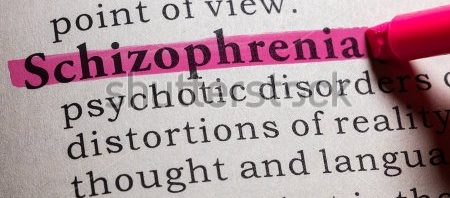Mental illnesses, such as schizophrenia, are not always well understood. Records of people with episodes and symptoms similar to schizophrenia date back to Egyptian times. However, there seems to be no difference in prevalence across races, or cultures. The origin or cause of schizophrenia is not known, although a strong genetic component is likely.
Although the word schizophrenia literally means split mind, but it is more like a split from reality. The positive or heightened effects often associated with schizophrenia are hallucinations, delusions and disorganized speech and behavior. It also has negative or under represented effects such as reduced expressions, speaking, and pleasure.
The onset of schizophrenia peaks at age 15-25 however in males the mean age is 31 and in females is 41. This gender difference may be due estrogen levels in females which may act as an endogenous antipsychotic.
Diagnosis and perception of the disease has more of a cultural connotation. Whether or not we see the symptoms of hallucinations or delusions as threatening or not depends on culture. In the US people are more likely to be described as mentally ill or schizophrenic compared to other cultures who see value in hallucinations. Some cultures see mental illness, such as schizophrenia, as a connection or communication with a super natural force.
The delusions of schizophrenic patients tend to reflect the culture form which they come. For example, someone in America is often paranoid about things such as technology or surveillance. In communities such as Ireland with a strong religious history tend to have visions of angels and a higher being and are seen as saint-like. In places such as Nigeria in which mental illness is seen as evil done by evil spirits people often have delusions of ghosts or witches.
While mental illnesses are difficult to treat, it is possible to help manage symptoms. Because mental illness varies from person to person it is important to find the right combination of drugs, therapy, and support to aid in combating schizophrenia. Interestingly, in developed nations, the fast-paced life may impede healing processes of schizophrenics because any minor disturbance can cause stress.
Antipsychotic drugs basically block dopamine receptors to help regulate abnormal dopamine levels seen in schizophrenics. However, many antipsychotics have many side effects that require monitoring. Therapy can be offered along with this to help control schizophrenic tendencies and avoiding substance abuse. Familial support is also very helpful through this process. Schizophrenia is often found in conjunction with some sort of substance abuse. Because the pathways that are affected by schizophrenia also play a role in substance abuse it can heighten the effects of that substance.
For more information please see:
https://www.nimh.nih.gov/health/topics/schizophrenia/index.shtml
http://www.mentalhealthamerica.net/conditions/schizophrenia
http://www.pbs.org/wnet/brain/episode3/cultures/




